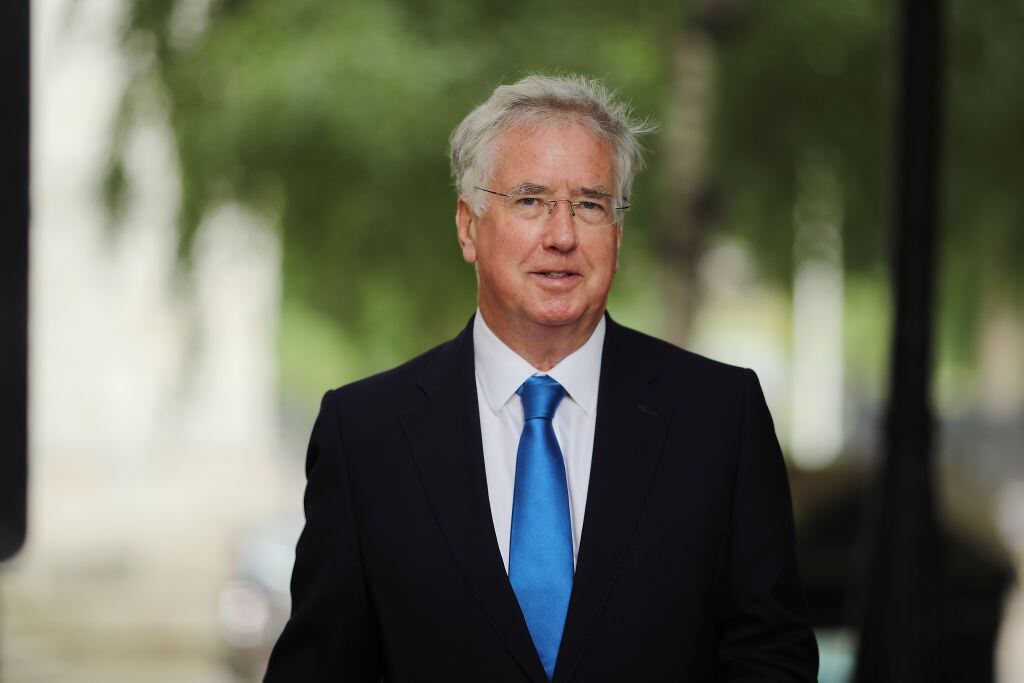LONDON — Completion of a planned mini defense and security review by the British government is expected to slip as the country’s new defense secretary comes to grips with the issues at hand.
The schedule set out in July when the government formally launched the review envisaged a decision on the way forward by the national security council before Christmas. But that time table looks to have been blown off course by the appointment earlier this month of Gavin Williamson as the new defense secretary, said Stephen Lovegrove, the permanent undersecretary at the Ministry of Defence.
“We may see some slippage, principally because we have a new secretary of state, who … is very conscious some of the decisions which he will be asked to make will be decisions which will last for generations; he feels appropriate responsibility for getting those right,” Lovegrove told a Parliamentary defense select committee hearing. He noted that he had spoken to the new defense secretary the day prior.
The review is expected to announce capability and program cuts to help close a black hole in defence department finances.
Apologies by error.
Leaks to the media have mainly focused on the potential axing of the Royal Navy’s only two amphibious assault ships, HMS Albion and HMS Bulwark, and 1,000 Royal Marines.
Recent media reports said Williamson had already decided to scrap that option, although Lovegrove was unable to confirm whether the defense secretary had or hadn’t made a decision.
“The final advice to the secretary of state on a particular matter has not been proffered to him. Exactly where he is personally I’m not privy to that,” said the MoD’s top senior servant.
Williamson was appointed defense secretary at the start of the month after Sir Michael Fallon’s unexpected exit from the post following sexual harassment allegations.
RELATED

“We weren’t expecting a new secretary of state to join us three weeks ago and he clearly wanted to take a little time to get up to speed with the work already done over previous months to see whether that accorded with his own view of where he wanted to take defense….He certainly has strong views about various aspects,” Lovegrove told the committee.
Defense is one of 12 strands of work being conducted across several government departments to update the 2015 strategic defense and security review and balance a MoD budget, which is estimated at being anywhere between £10 and £30 billion over committed during the next 10 years.
Newspaper reports over the weekend said the MoD had asked for more money for defense but Lovegrove denied there had been a formal call for more money.
“I’m not aware at all of a formal request going from the department to the Treasury for more funds,” he said.
The Chancellor, Philip Hammond, an ex-defense secretary, unveils his budget for the coming year Nov 21. Whether there will be any more money for defense is unclear.
The government has pledged a small 0.5 percent annual real-term increase in the defense budget until 2022 but that’s nowhere near enough to cure the problems of an armed forces that a top former military office told the defense committee recently was no longer fit for purpose.
The British military are facing capability and program cuts and other reductions to balance the budget. A re-prioritizing of programs is also expected as the MoD recalibrates to counter what it says is an intensifying threat in cyber, space and other areas.
Committee members told Lovegrove and other government witnesses that it was not credible for government officials to come to Parliament and tell lawmakers capabilities are going to be lost on the one hand and talk about the diversity and intensification of the threat on the other.
British defense spending this year stands at nearly £40 billion and the plan is to spend £178 billion on equipment and support over the next 10 years.
The likely outcome of the review on British defense companies is already having an impact here with share prices for companies like BAE Systems, Babcock International and Ultra Electronics weakening ahead of expected program and support cuts.
In a trading statement released Nov 10, Ultra admitted there were “mounting pressures in the funding of U.K. defense program” which has resulted in the U.K. MoD pausing, canceling or delaying numerous programs.
Andrew Chuter is the United Kingdom correspondent for Defense News.







